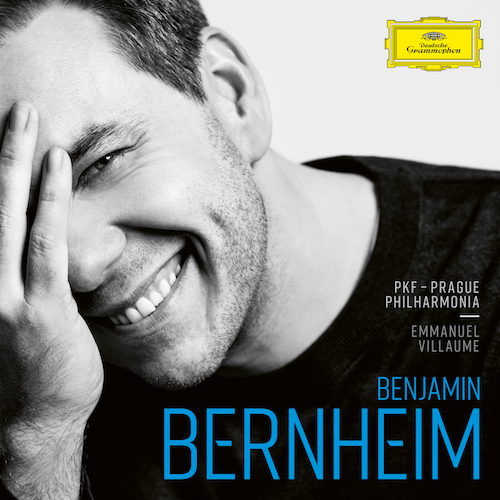Album Review: Benjamin Bernheim/ Deutsche Grammophon
Benjamin Bernheim
PKF – Prague Philharmonia/ Emmanuel Villaume
DG 483 6078
Written by Randolph Magri-Overend
Some of you may not have heard of lyric tenor, Benjamin Bernheim. You are not alone. I came across him purely by accident when flicking through YouTube’s new music downloads and there he was. As he sang Lensky’s Aria from Tchaikovsky’s Eugene Onegin, I was riveted. After I recovered and managed to unscrew (!) myself from my seat I tried to discover where I could buy his album, but there was nothing available from the local outlets. Eventually I had to reach across the seas (and continents) to the UK.
So what do we know of M. Bernheim? He is just short of his 36th birthday, was born in Paris but grew up in Geneva where he initially studied violin and piano. At 10 he started taking singing lessons at the local conservatory. At 18 he began studies at the Lausanne Conservatory and in the 2008/2009 season was accepted by Opernhaus Zurich for more vocal development.
He is currently a frequent guest at the Royal Opera, Covent Garden in London, the Staatsoper Berlin, the Wiener Staatsoper, the Opéra national de Paris, Teatro alla Scala in Milan, and the Whitsun Festival in Salzburg and Salzburger Festspiele.
His voice is exceptionally beautiful and compellingly appealing. In 2020 the French magazine ‘Classica’ described the album as: “We do not know what to admire the most, the consistent elegance of the phrasing, the obvious charm of the voice, the perfection of the diction, the glorious highs or the infinite nuances without ever losing the colour of the timbre.”
That same year the German ‘Oper! Magazine’ reported that Bernheim’s voice was predestined to sing French repertoire. It concluded: “With a sensitive voice, combined with a metallic penetrating quality, Bernheim has developed a technically strong voix mixte” (whatever that means!)
However, I have one reservation in his choice from Berlioz’s La Damnation de Faust. It is far too bombastic and does not suit the tenderness of his voice. Similarly, the recitative from Verdi’s Luisa Miller. But the aria that follows Quando le sere al placido is back to his eloquent best. His use of Italian and French is immaculate and his choice of arias from those repertoires, superb. Outstanding is the aria Tombe degli avi miei. It is the last aria from Lucia di Lammermoor and I have seen (and heard) many a tenor stumble over its execution – mainly through too much singing at ‘high altitudes’.
Exceptional! And very well worth listening to….. if you can beg or pilfer a copy!!
About Randolph Magri-Overend

“When I first set foot on the Sydney Opera House stage to act in Boris Godunov in late 1979, I hoped my Nannu Gusi was taking note from up above. He was the driving force behind my love for classical music, especially opera. Since that first step I played out my fantasies many a time in other operas. At the time I was trying to make it as a classical singer…even a young Simone Young was my coach. But I was never successful and later in life I became a ‘disc jockey’ for the likes of Fine Music (amongst others). I also wrote reviews, programmes and wrote articles for their magazine. I hope I can share with you, the joy I harbour for music.”







